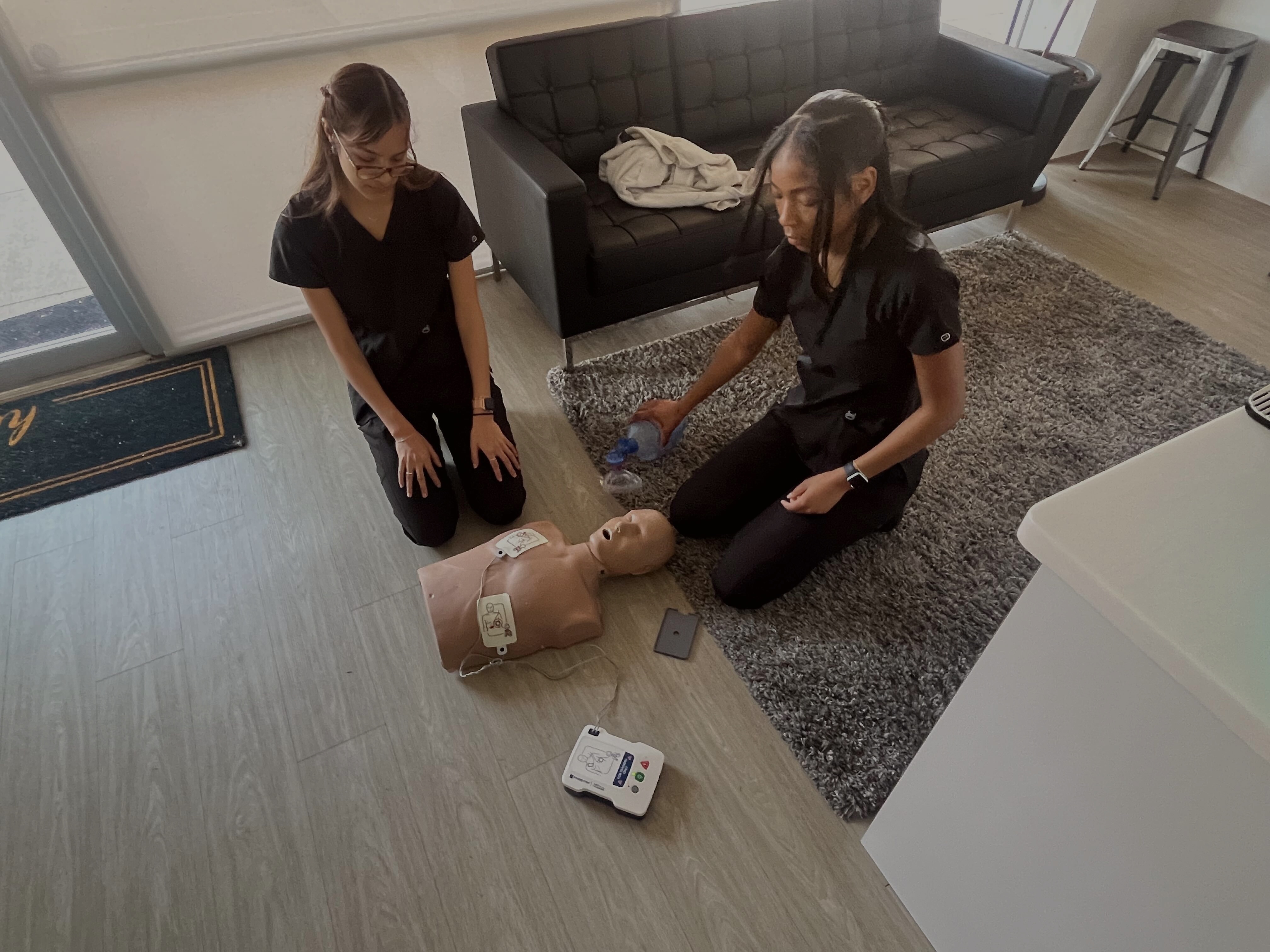What Will I Learn in an Amarillo Medical Assistant Certification Program?
Pursuing a career in medical assistance offers a pathway into the healthcare industry that combines patient care, administrative tasks, and a supportive role within medical teams. As a medical assistant, you’ll be expected to perform a variety of clinical and clerical duties that are essential to the smooth operation of healthcare facilities. Enrolling in a medical assistant certification program, such as the one offered by Amarillo Medical Assistant School, is the first step toward gaining the knowledge and skills necessary to excel in this dynamic field.
Medical assistant certification programs are designed to equip students with the comprehensive training needed to perform effectively in various healthcare settings. These programs cover a range of topics, from patient care techniques to administrative procedures. By the end of the program, students are well-prepared to take on the responsibilities of a medical assistant, ensuring that they can provide high-quality care and support to both patients and healthcare professionals. Here are five hard skills you can expect to learn in an Amarillo medical assistant certification program:
1. Patient Intake and Vitals
One of the foundational skills that medical assistant students learn is patient intake and vitals assessment. This involves greeting patients, gathering their personal and medical information, and documenting this data accurately. Proper patient intake is crucial for ensuring that healthcare providers have the necessary information to deliver appropriate care. During training, students learn how to communicate effectively with patients, making them feel comfortable and at ease during their visit.
Vital signs measurement is a critical component of patient intake, providing essential information about a patient’s health status. Medical assistants are trained to measure and record vital signs such as blood pressure, temperature, pulse, and respiration rate. These measurements are vital for diagnosing and monitoring medical conditions. Students learn how to use various medical instruments, such as sphygmomanometers and thermometers, and are taught the importance of accuracy and consistency in recording vital signs.
2. Pharmacology
Understanding pharmacology is another key skill that medical assistants need to master. Pharmacology involves the study of drugs and their effects on the human body. Medical assistants play a crucial role in managing medications, which includes documenting prescriptions, providing patients with information about their medications, and ensuring proper storage and handling of pharmaceuticals. Through their training, students gain a thorough understanding of different drug classifications, dosages, and potential side effects.
Medical assistants must also be knowledgeable about medication interactions and contraindications to help prevent adverse effects and ensure patient safety. The training program covers the legal and ethical considerations related to medication administration, emphasizing the importance of adhering to healthcare regulations and guidelines. Students learn how to assist healthcare providers in managing prescriptions and educating patients about the proper use of their medications.
3. Phlebotomy
Phlebotomy is the skill of drawing blood from patients for diagnostic testing, and it is an essential part of a medical assistant’s duties. During the certification program, students receive hands-on training in phlebotomy techniques, learning how to perform venipunctures and capillary punctures safely and efficiently. This includes understanding how to prepare patients for blood draws, selecting the appropriate equipment, and adhering to infection control protocols to ensure both patient and staff safety.
Proper phlebotomy skills are vital for obtaining accurate laboratory results, which are crucial for diagnosing medical conditions and monitoring treatment effectiveness. Students learn how to handle and label blood samples correctly, as well as how to transport them to the laboratory. The program also emphasizes the importance of patient communication and comfort during the blood draw process, teaching students how to alleviate patient anxiety and ensure a positive experience.
4. Urinalysis
Urinalysis is a common diagnostic test used to evaluate a wide range of health conditions. Medical assistants are trained to collect, process, and analyze urine samples, providing valuable information that assists healthcare providers in diagnosing and managing diseases. During the program, students learn how to perform routine urinalysis tests, including physical, chemical, and microscopic examinations of urine samples.
Understanding the principles of urinalysis is crucial for identifying abnormalities that may indicate medical issues such as urinary tract infections, kidney disease, or diabetes. Students are taught how to interpret urinalysis results and recognize common indicators of health problems. Additionally, the program covers the proper handling and disposal of biological specimens, emphasizing safety and compliance with healthcare regulations.
5. Electrocardiography (ECG)
Electrocardiography (EKG) is a technique used to monitor the electrical activity of the heart, providing critical information about heart function and detecting cardiac abnormalities. Medical assistants are trained to perform EKG tests, including placing electrodes on patients, operating EKG machines, and producing accurate recordings of heart activity. This skill is essential for identifying conditions such as arrhythmias, heart attacks, and other cardiovascular issues.
The training program teaches students how to recognize normal and abnormal EKG patterns, equipping them with the knowledge needed to assist healthcare providers in diagnosing cardiac conditions. Students learn how to prepare patients for EKG tests, ensuring that they are comfortable and informed throughout the procedure. The program also covers the maintenance and troubleshooting of EKG equipment, ensuring that medical assistants can provide reliable and efficient support in clinical settings.
Find Your Future in Medical Assisting Today
Amarillo Medical Assistant School is a local leader in world-class medical assistant education. Our medical assistant certification program provides comprehensive training that has helped thousands of aspiring medical assistants acquire the in-demand skills needed for successful careers. With a focus on hands-on learning and expert instruction, Amarillo Medical Assistant School prepares students to excel in various healthcare settings, making a positive impact on patient care and the medical community. If you’re ready to start your journey as a medical assistant, consider enrolling in our program today and take the first step toward a rewarding career in healthcare.
Apply today to get started.
You're only a few months from the medical assistant career you deserve.
